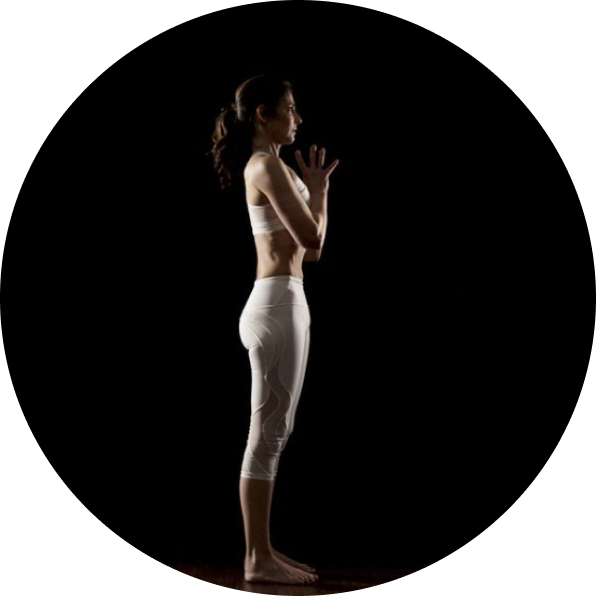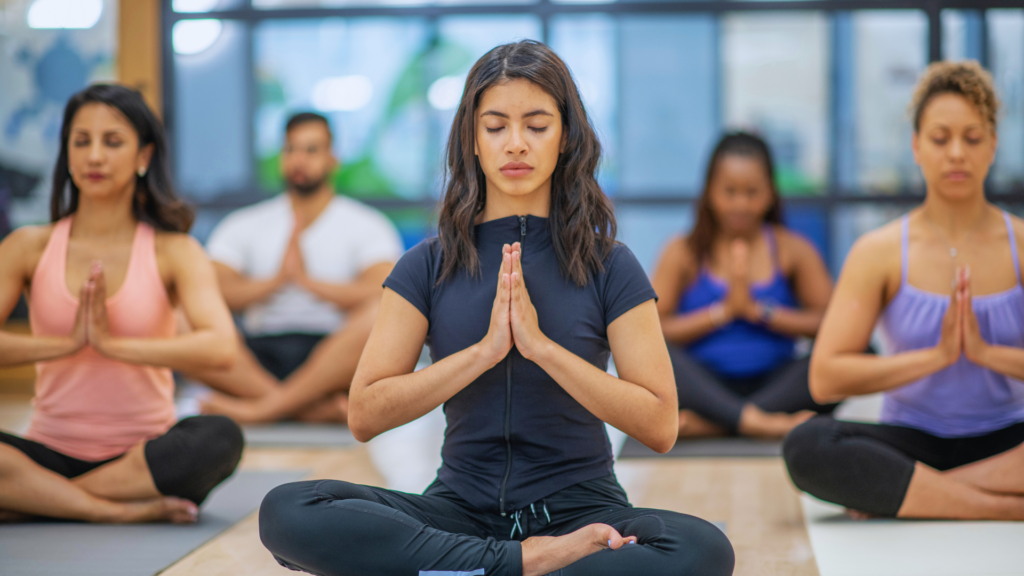Tomorrow (October 10th, 2022) is World Mental Health Day when mental health activists and practitioners across the globe work to spread the word that mental health is something everyone should care about. While many of us are well aware of the physical benefits of LYT online yoga classes, did you know that daily yoga has been shown to have a positive effect on your mental health as well? In fact, one of the best benefits of yoga is how it can help a person manage stress.
Impact of daily yoga on mental health
Our bodies are hard-wired to react to stress, which can wreak havoc on our bodies and minds. When we encounter a perceived threat such as a heavy workload, managing family, or pain and illness, a small region in our brain called the hypothalamus sets off an alarm in the body. Through a combination of nerve and hormone signals, the adrenal glands release a surge of hormones, including cortisol. Cortisol is the primary stress hormone and performs several functions to prepare the body in a fight-or-flight situation, including altering the immune system and communicating with the brain areas that control mood, motivation, and fear. If a person is under prolonged stress and overexposure to cortisol, they are at risk of many different health problems, including anxiety, depression, headaches, digestive issues, muscle tension and pain, heart disease, sleep problems, and memory/concentration impairment.
Mood boosting
All exercise can boost our mood by lowering levels of cortisol in the body and increasing the production of endorphins. However, yoga may have additional benefits, as it has been shown to increase levels of a brain chemical called gamma-aminobutyric acid (GABA), which is associated with better mood and decreased anxiety. A review of 15 studies, published in the journal Aging and Mental Health, looked at the effect of a variety of relaxation techniques on anxiety and depression in older adults, including yoga, massage therapy, progressive muscle relaxation, stress management, and listening to music. While all the techniques provided some benefit, daily yoga and listening to music were the most effective for both depression and anxiety. Yoga appeared to provide the longest-lasting effect of the two.
Meditation with yoga
Yoga’s inclusion of meditation and breathing can also have positive benefits on mental health. Meditation has been shown to reduce activity in the part of the brain called the limbic system, which is dedicated to emotions. As your emotional reactivity decreases, you have a more level response when faced with stressful situations. Deep, slow breathing is associated with calming the body down, as it helps activate the parasympathetic nervous system, relaxing the body after periods of stress or perceived and/or real danger.
Yoga and mental clarity
Finally, a regular yoga practice facilitates mental clarity and calmness. The increased body awareness we create, especially with LYT Yoga, is particularly helpful with the early detection of physical problems. Recognition and correction of suboptimal movement patterns relieve chronic stress patterns in the body, so we feel better physically. When we feel better physically, we are better equipped to find harmony in the mind. There is a cascade effect of self-healing and better overall health, inside and out.
So find some time in your schedule for your LYT Yoga practice, utilizing the movement as medicine for the body and mind. Be kind and compassionate to yourself both on and off the mat. Hop online and join me, so we can take a little time for healing together.
Xoxo,
Kristin





